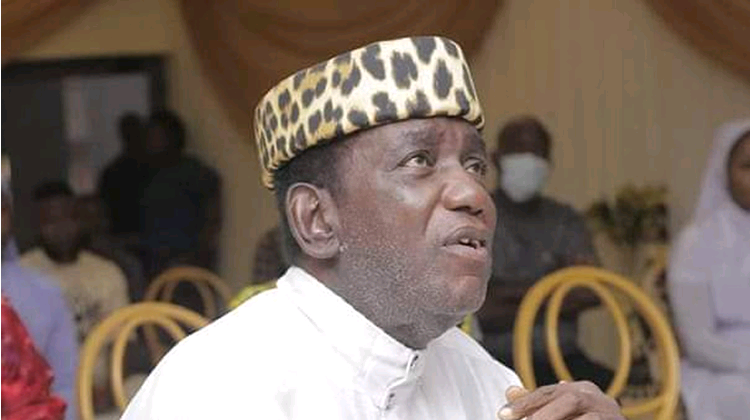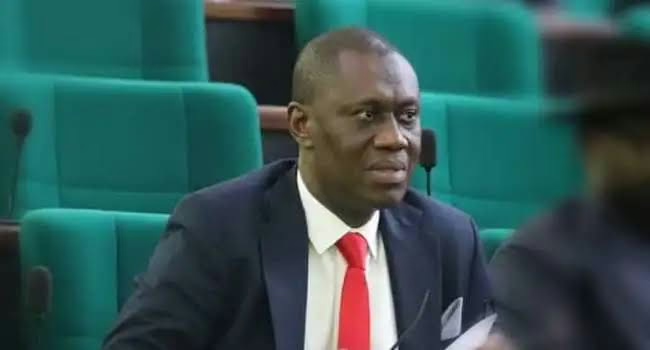Dillibe Jnr is one of the sons of the late renowned writer, Dillibe Onyeama, who authored the controversial book, Nigger at Eton, published in 1972 and mirroring his experience with racism in the United Kingdom as the first black African to graduate at Eton College, London. He tells GODFREY GEORGE about his father’s career and legacy
Please, tell us more about yourself.
I am 37 years old. I am a photographer and filmmaker. I am a graduate of Mass Communications. I am from Eke town, Uzzi Local Government Area of Enugu State. I am one of the sons of the late renowned author and publisher, Dillibe Onyeama, who is best known for his book, Nigger at Eton.
How long have you been a photographer?
I have been a photographer for almost 18 years. I was deeply influenced by my dad’s creativity. My father supported my career because he believed in creativity. He had always known I was artistic and had always commended me for being artistic. He was also an artist. He knew my capabilities and supported and welcomed my talent.
Did he tell you about his childhood?
Yes, he did. He was born in Lagos, Nigeria, but he didn’t grow up there. He did some part-time growing up in Enugu State, and around the age of eight, he got a scholarship and traveled to London to continue his education. He left for London shortly before Independence, I believe, so I am not sure he knew very much about Nigeria or its beginnings, although he must have heard a lot of things which he also told us, his children, about. He was in London before the Civil War, too. But, he told me that when he traveled to the United Kingdom, he met a lot of issues bothering around discrimination, being the first black pupil in one of the most prestigious British schools, Eton College, London.
Did he tell you any story of his growing up with your grandfather, the late Justice of the Supreme Court and the International Court of Justice, Charles Onyeama?
He did. His father, Onyeama, was the first African War Court Judge in the ICJ, the Hague, in the Netherlands. His mom was Dame Sussanna Onyeama; she was a housewife, I think. But, she was well-read and I remember how she spoke very good English. They both had beautiful memories together. It was a closely-knit family. They were very disciplined and that discipline was what he transferred into raising us as kids.
Did your father tell you some of his experiences at Eton?
Yes, he told us some. We were little children back then. I can remember a few. He told us, first, about how excited he was when he got the news that he had been chosen to go abroad to study. He was amongst the very few black people from Nigeria who had such honour owing to his exceptional brilliance as a child. But, he later said he became so surprised and almost mortified because of the treatment he got from fellow pupils back at Eton. The pupils, who were mostly white, would cuss at him and ask him what he was doing in class. They asked him why his skin was so dark and whether he didn’t bathe. Some of them even became violent with him. Most of what he went through, he didn’t even capture in that book. He went through a lot at Eton. The pupils bullied him so much that he entered into his shell. Although at the end of the day, he came out well.
At first, he couldn’t do well academically because of the way the pupils treated him. They made him feel so inferior that he couldn’t even concentrate on his studies. Later on, through his resilience and never-giving-up attitude, he came out well and graduated from Eton successfully. He decided to pen down his experiences because he knew other blacks would go to that school and might experience even worse than what he experienced as a child. He also wanted to use the book to send a message to the authorities who might not be aware of the bullying and racism going on right under their noses. And, I am sure that, in the end, the real purpose of the book was not defeated as the entire world became more aware of child bullying and racism which went on at Eton at that time.
Dillibe Jnr. with dad, wife and children
When the book was published, did he tell you what the reaction was from the authorities both home and abroad?
You know he had just finished his programme and returned to Nigeria to join his family. He told us that a lot of people, including his father, the late Justice Charles Onyeama, advised him against releasing the book at the time but he refused. He was convinced that he needed to tell his story at Eton. They were considering the controversy that might trail its release, so it doesn’t block the way for other African pupils who might have been considered for scholarships in Europe. He just waited till he had graduated before he released the book. Once the book was released and was read by the school authorities, he was banned by the alumni association from ever visiting the school. He believed he desecrated the reputation of the school. It was not until 2020 that a new principal came on board and issued an apology and told him to come to the school whenever he pleased. He also gave him back his right to join the Alumni Association of Eton College.
How did he react to this?
My dad, at first, didn’t feel it was necessary, but he was just glad that the right thing was done. He, however, told them to pay his fare so he could go to Eton and claim whatever rights they wanted to give him. He is a man who seeks justice. He was a peaceful man.
When did he get married? Was it immediately after he left Eton?
It didn’t happen immediately after he left Eton. It was a few years later that he met my mom and they got married. I am his second son. I know he got married to my mom in 1982. This was many years after he published Nigger at Eton. They had their first child the next year.
Why do you bear his name, Dillibe Onyeama?
Only he can answer that question, but unfortunately, he is not here now because he has joined his ancestors. However, his full name is Charles Dillibe Ejiofor Onyeama. He bore his father’s first name, Charles. But Dillibe Onyeama is his most popular name combination. He gave my elder brother, Charles, a carry-over from his father. He gave me Dillibe Lewis Onyeama. His third son, who is my younger brother, he named Ejiofor Stephen Onyeama. So, we, his sons, all have his name Charles Dillibe and Ejiofor Onyeama. It was not a coincidence. I just happen to be the one with the popular name.
How does that make you feel?
It makes me feel special, I must say. Ironically and coincidentally, too, a lot of people say I look like him, too. They also say I behave a lot like him. What can I say? I am pleased.
What fond memories do you remember of your childhood with your father?
That is going to make me cry. He was a very fond person to be with. I am not going to lie that he was not temperamental. But, he believed in justice. He had his flaws. He wasn’t perfect; nobody is. But, he believed in doing what was right. He would have been bigger than he ever was and acquired a lot of wealth and power if he had joined the bandwagon to do politics. He had all it took to do politics. His dad was a Supreme Court judge. He knew a lot of people. His father’s name gave him access to a lot of bigwigs and some of the bourgeoisie. He met a lot of them because of his dad’s influence. He would have pushed further but he had a philosophy that pulled him back from so many activities of the average Nigerian politician and elite.
I remember he published a book, Vandals in Power, by the late Abubakar Gimba. The book narrates the dark sides of Nigerian politics, which include corruption and embezzlement of public funds. He put it out there. If he wasn’t a man who was cautious about exposing the dark side of Nigerian politics for the greater good, I don’t think he would have agreed to publish that book or put his name anywhere near such a book. He believed we deserved a country where leaders are competent and efficient. Having spent most of his youth in London, England, and seen how good governance worked, he was shocked to return to Nigeria to see some ridiculous and rather awkward style of governance. I believed he was motivated to not really join politics.
Did he spend time with you and your siblings?
was quite famous in England for his books. When he returned to Nigeria, he wrote a book called Godfather of Voodoo. That book also shot him into greatness. Coming from a wealthy father, it wasn’t much of a problem. He tried to get in, saw what was in, took steps back, and returned to his first passion – writing. My father was very content with what he had.
Writing can be such a demanding job. Was your father always available for the family?
He was always available. But, along the line, he married another wife because it didn’t work out with my mother and him. It is something most people are familiar with. Not all marriages ought to work out. It wasn’t a divorce because we are Catholics and it’s not easy getting a divorce in the Catholic Church. He married another wife and started raising another family. There was a bit of a mishap or overlap at that time and we didn’t always get in touch during our adulthood days. But I can tell you that he did the best he could.
Your dad wrote very many controversial books after he published Nigger at Eton, and he was also a journalist and publisher. Were you ever afraid for his life?
I wouldn’t really say as children then that we were. This is because we were not a poor family. We are what one would call ‘silver-spoon’ kids. So, he always made us comfortable. We had our breakfast, lunch, and dinner and we went to good schools. All we needed to do was get a good result. He was a writer who was very well respected in his circle and his father was also very wealthy and influential so there was very little for him to fear. We were naïve as kids who didn’t know about the dangers of our father’s business. It wasn’t much of a problem. But, as a teenager, I remember one time when one of his colleagues who was a journalist was assassinated. He made us feel concerned. I saw his picture in the newspaper, where it was reported that he had been assassinated by gunmen. My father called us and told us about it, and fear gripped me for a moment, but that didn’t last long and we were back to being our happy selves again.
What were some of the values you learnt from him as a child?
He always told us not to be the aggressor. He used to sit us down and give us many valuable lessons about life. So many things he told us about life are the things we are using to raise our kids today. He told us never to choose violence at all. He told us to make mistakes but keep our heads up. He inspired us in so many ways and believed in us. When I told him I was going to be an artist, he supported me and encouraged me to keep it up. When I ended up with photography, he also supported my career. A lot of things went bad, but he never stopped inspiring us.
What food did he love?
For Nigerian dishes, he liked egusi soup and akpu (pounded yam). For the intercontinental dish, he loved spaghetti and minced meat garnished with garlic. He prepared it a lot.
Did any of you study abroad?











Leave a Reply